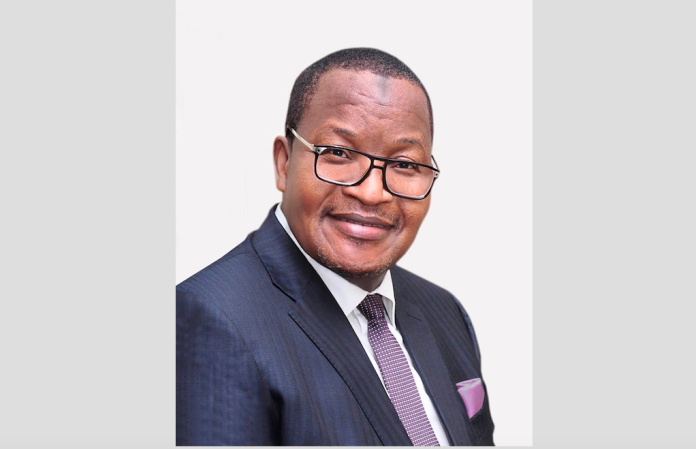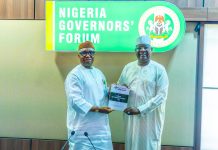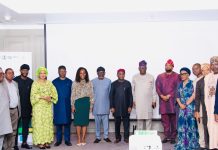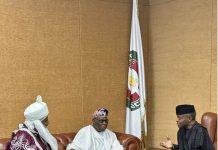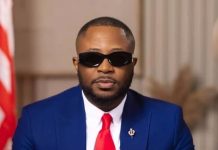Apparently spurred by the vision, objectives and successes of policies, programmes and projects instituted by the Nigerian Communications Commission (NCC) to bridge the digital divide and encourage the youth to harness derivable benefits of the Fourth Industrial Revolution (4IR), the authority of the Fountain University, Osogbo (FUO), Osun State, has picked the Executive Vice Chairman/Chief Executive Officer of NCC, Prof. Umar Garba Danbatta, to deliver 10th and 11th Convocation Lecture of the university.
The combined Convocation Lecture, titled: “Empowering the Nigeria Youth Through Information and Communication Technology” will take place on January 13, 2022 at NASFAT Eti-Osa Lecture Theatre in the university. Eminent personalities from government, industry and the academia are expected at the event scheduled at the heart of the week-long convocation ceremony.
Since his appointment in 2015 by President Muhammadu Buhari as the EVC/Chief Executive Officer of NCC, Prof. Danbatta has worked with the Board, Management and staff of the Commission to sustain and improve on accomplishing Commission’s mandates and associated vision focused on digital literacy and enhancing the capacity of young people, students, their teachers and institutions to be active players in the emergent digital economy.
One way in which this vision has been given concrete expression is in the diligent execution of the NCC’s School Support Programmes, which include Digital Access Programme (DAP), Advanced Digital Appreciation Programme for Tertiary Institutions (ADAPTI), Wireless Cloud and Computer-Based Test projects. All these are infrastructural projects that involve construction of Information and Communication Technology (ICT) laboratory, supply of computers, connectivity project and construction of special computer-based test centres to enhance capacity of examination bodies to organise computer-based examinations with ease.
While these projects and programmes have benefited students, teachers and lecturers in arming them with modern techniques of knowledge acquisition and enabling the use of web-based resources to improve learning and teaching, other infrastructure projects and capacity-enabling programmes such as University Campus Connectivity (UniCC) project, Base Transceiver Station project, Backbone Transmission Infrastructure (BTRAIN), Digital Nigeria Centre, E-Accessibility, among others, are also being implemented by the Universal Service Provision Fund (USPF), an arm of the Commission.
The NCC, through Prof. Danbatta leadership, has continued to sponsor young innovative Nigerians to participate in ICT-focused competitions both nationally and globally, sponsor tech-startups to develop applications that address specific national concerns in the areas of health and security.
The Commission also collaborates with the academia to facilitate concrete linkage in research and development, innovation, technological incubation for national development with particular focus on harnessing the creative energy of the young people in the country, as evident in the annual national essay competition targeting young people who receive prizes annually.
Over the years, Danbatta has delivered high-profile academic and non-academic lectures at different tertiary institutions, national institutes and for professional bodies at the national and international levels, the imports of which have continued to reshape thinking on how best digital infrastructure can be maximally deployed and harnessed for overall development of the nation’s economy.
The Fountain University’s Convocation Lecture provides another opportunity for Danbatta to share his thoughts in this regard by intellectualising the discourse on how the foregoing and future plans of the Commission can help to situate the Nigerian youths to a point where they would play greater role in the emerging competitive global economy, relying on ICT resources.
Danbatta, a professor of Telecommunication Engineering, has taught in the university for over three decades, serving concurrently as an administrator and researcher. In those years, he had supervised over 60 students in bachelor, master and doctoral levels. He is a fellow of the Nigerian Society of Engineers (FNSE), Nigerian Academy of Engineering (FAEng.), Renewable and Alternative Energy Society (FRAES) and Nigerian Institute of Electrical and Electronic Engineers (FNIEEE).
He has published several articles in journals, conference proceedings and technical reports. He is the author of a book on Elements of Static Engineering Electromagnetics.



